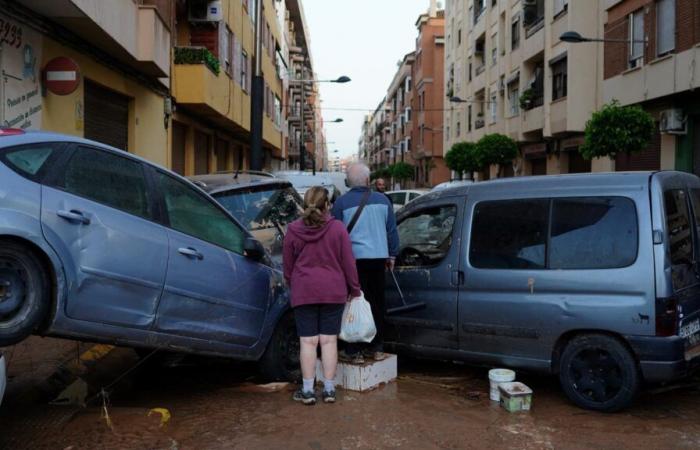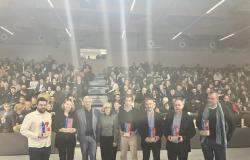Gentil de Passos, head of mission of the French Disaster Relief Group (GSCF), says he is surprised by the absence of Spanish rescuers in certain disaster areas around the city of Valencia. He salutes the “impressive solidarity” of the local population.
The anger does not subside. A week after the deadly floods which hit Spain and left 217 dead according to a still provisional report, criticism is increasing against the Spanish authorities for their lack of responsiveness before and after the tragedy.
On BFMTV this Monday, November 4, Gentil de Passos, head of mission of the French Disaster Relief Group (GSCF), confirms that he and his men, who arrived in Alfafar on Friday, November 1, were the first to intervene in this neighboring town of Valence . They intervened even before Spanish relief, three days after the deadly floods.
“We realized that in certain areas, we were the first responders to arrive on site,” says the man who remembers a “scene of desolation.”
Gentil de Passos claims to have received “a warm welcome” from the local population. “Learning that French people were there affected them. But it was also complicated for us to manage that, we didn't expect it, our primary mission is logistics and we found ourselves faced with people who asked us to help them.”
Posted on social networks, a video showing the arrival of French firefighters in Alfafar provoked anger on the other side of the Pyrenees, where many Internet users criticized the lack of Spanish relief, while others thanked the action of the French military.
“Impressive solidarity”
On BFMTV, Gentil de Passos also paid tribute to the “impressive solidarity” of the local population, who remain “very active.”
“There is sadness, because there is a lot of human loss, but everyone is rolling up their sleeves to move forward,” reports the rescuer, who also mentions “a nauseating smell” which begins to appear nearby. underground car parks.
According to him, the current emergency is to “shelter people”, to prevent unsanitary conditions in the most affected neighborhoods and to “avoid epidemics.” “The primary goal is people who have suffered major trauma, they are tired, bruised. After a week, these are people who are exhausted,” he concludes.






